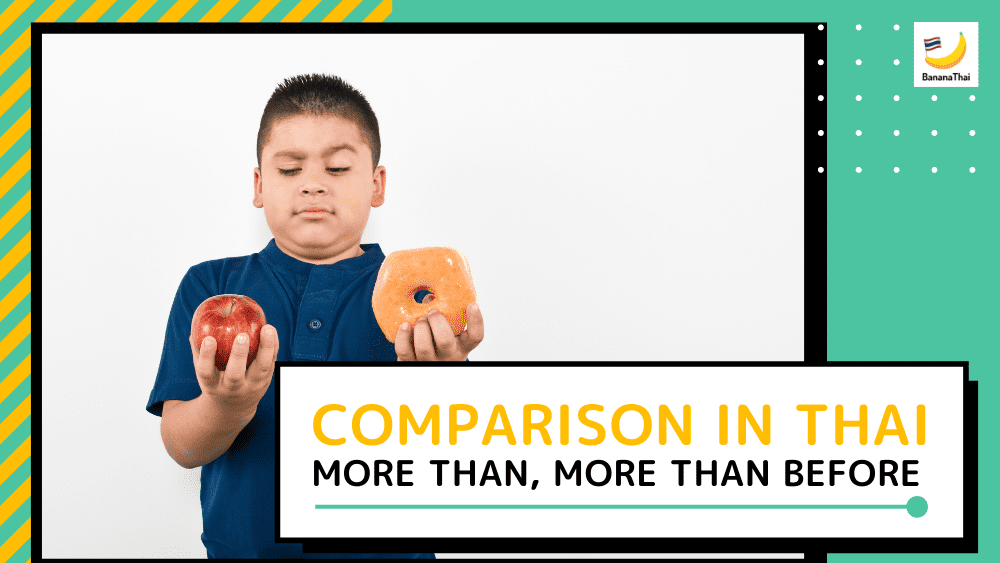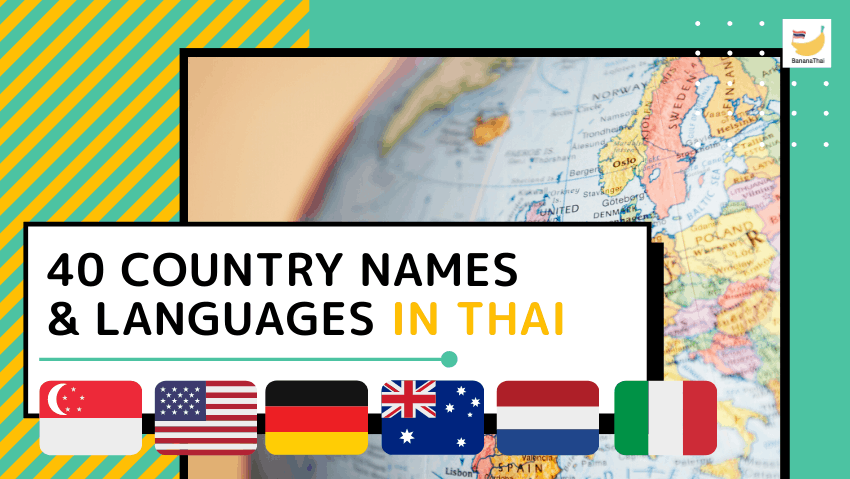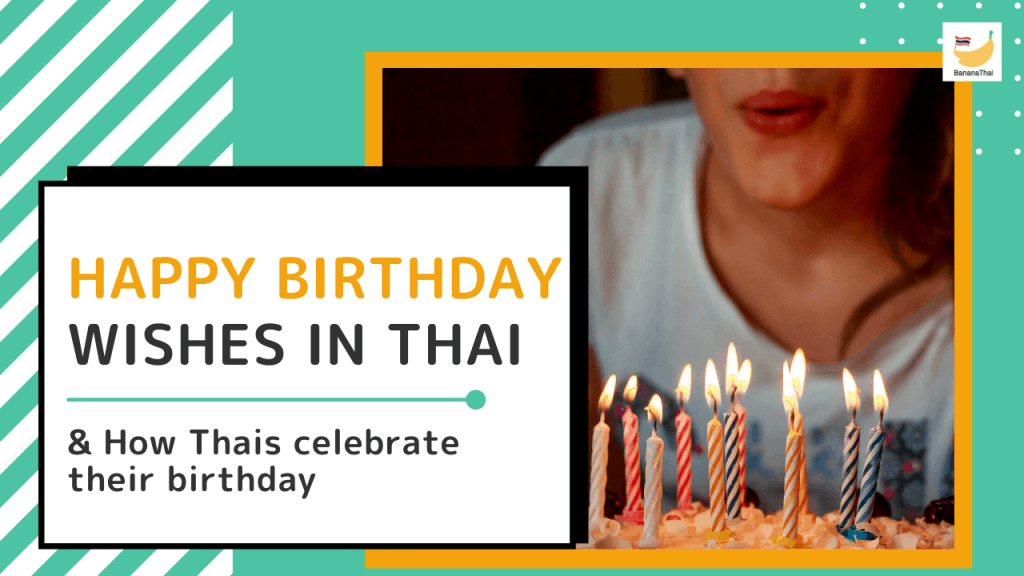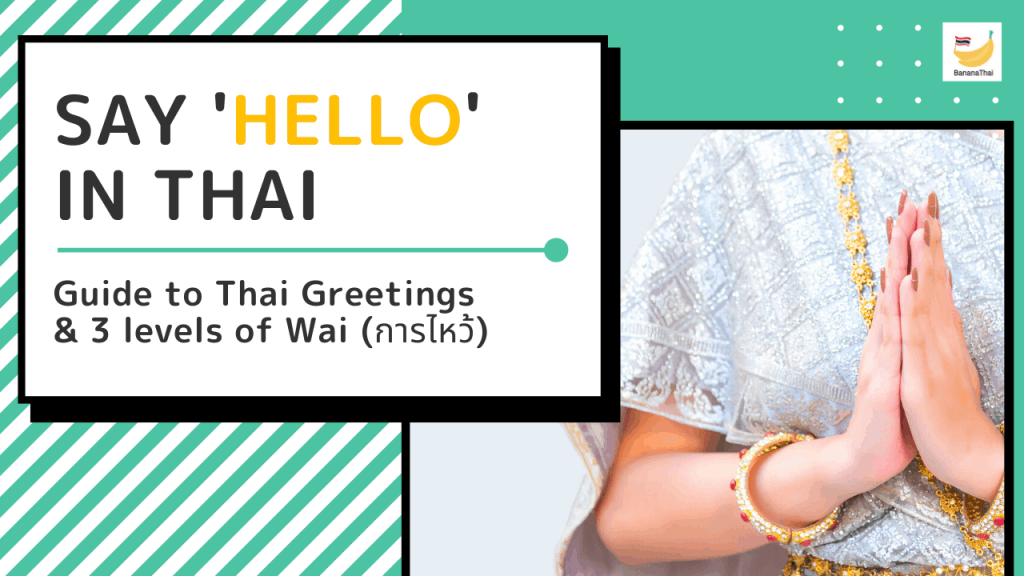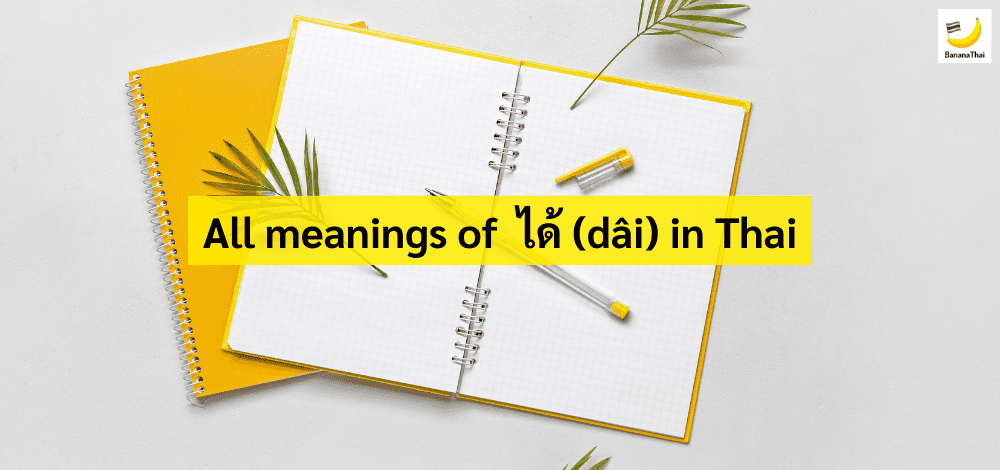
ได้ (dâi) is one of the most frequently used in daily Thai. Maybe it’s because this word has many meanings. In this post, I will teach you all meanings of ได้ (dâi) and ways to use it in your Thai sentences. Let’s enjoy!
Content Overview
ได้ dâi (Verbs)
ได้ (dâi) can be verbs in Thai.
1. ได้รับ (dâi) = to receive to get
Please note that, many times Thai people just say “ได้” (dâi) for example, คุณได้เงินหรือยัง (khun dâi nguen reǔ-yang) = Did you received the money?
2. ได้ยิน (dâi-yin) = to hear
คุณได้ยินฉันไหม (khun dâi-yin chǎn mǎi) = Do you hear me?
3. อยากได้ (yàak-dâi) = to want to have/to get/to buy
ฉันอยากได้รถคันใหม่ (chǎn yàak-dâi ròt kan mài) = I want to have a new car.
ได้ dâi as “Yes!”
The word ได้ (dâi) is used to confirm the possibility, ability, availability, and permission. So it can be a reply as “sure”, “of course!” or “absolutely”.
When someone asked you to go to the cinema, and you want to respond as “yes, sure!”, you can say “ได้ (dâi)”.
ได้ + ending words
You can add some particles (ending words) to use with ได้ (dâi) to give specific feelings or implications.
For examples
– ได้เลย (dâi loey) = Absolutely yes.
– ได้สิ (dâi sì) = Ys, of course!
– ได้มั้ง (dâi máng) = Probably yes.
Example dialogue
A: คืนนี้เราไปดูหนังกันไหม (keun née rao bpai doo năng gan măi) = Let’s go watch a movie tonight?
B: ได้เลย (dâi loey) = Yes, Absolutely!
ได้ dâi as “Can!”
The helping Verb “can” in Thai is ได้ (dâi). Please note that there are other words that can be used as “can” in English. For now, I will only explain the ได้ (dâi) as “can”.
If you put the word ได้ (dâi) at the end of the sentence, it works as Verb can.
ได้ (dâi) = “can” for availability
If you want to state that something/someone is available, you can use ได้ (dâi).
For examples
– ฉันไปทำงานพรุ่งนี้ได้ (chǎn bpai tam-ngaan prûng-níi dâi) = I can go to work tomorrow (because I am free.)
– คุณใช้คอมเครื่องนี้ได้ (kun chái kom krêuuang née dâai) =You can use this computer (because no one is using it now)
ได้ (dâi) “can” for ability
If you want to state that someone has the ability to do something, you can use ได้ (dâi).
For examples
– ฉันขับรถได้ (chǎn khàb-rót dâi) = I can drive. (because I do not have a visual disability)
– ฉันว่ายน้ำได้ (chǎn wâai-náam dâi) = I can swim (because I do not have skin infection)
ได้ (dâi) “can” for permission
If you want to state that someone has permission to do something, you can use ได้ (dâi).
For examples
– เข้ามาได้ (kâo maa dâi) = You can come in.
– ฉันไปเที่ยวกับเธอได้ (chǎn bpai tîiaw gàb ter dâi) = I can go out with you (because my mom allowed me to)
📍This topic is also taught in the Intensive Thai course. You can see the free preview lesson of the Verb “can/could” in Thai on YouTube.
https://www.youtube.com/watch?v=X4ULCxDpGqA
Tips for Verb can
ได้ dâi for past tense
As you might know that there is no conjugation of verbs in Thai including for tenses, we use filling words (aka. particles) to indicate tense. ได้ (dâi) is one of the past tense indicators.
📍 Learn more about Past Tense on our blog post (5-min read)
“Subject + ได้ (dâi) + verb” is one of the syntaxes for past tense as “I got a chance to…”.
For examples
– ฉันได้กินเค้กแล้ว (chǎn dâi gin cake láew) = I already ate the cake. (got a chance to eat the cake)
– ฉันไม่ได้กินเค้ก (chǎn mâi-dâi gin cake) = I did not eat cake.
Tips to differentiate “past tense” and “verb can”
As you can use ได้ (dâi) for both cases, here is a tip from me. Look at the position of ได้ (dâi):
ได้ (dâi) at the end of the sentence = Verb can
ได้ (dâi) before a verb = Past tense
– ฉันกินเค้กได้ (chǎn gin cake dâi) = I can eat cake.
– ฉันได้กินเค้ก (chǎn dâi gin cake) = I got a chance to eat cake.
Summary
That’s it for the common ways to use ได้ (dâi) in Thai. One word can have many meanings and also use in different locations of a sentence. I hope you enjoy reading and learning from this blog post.
In case want to improve your Thai foundation and syntax, please feel free to check out the Intensive Thai course, a fundamental course to learn basic Thai foundation (A1-A2 levels). Or if you’d like to have lessons with our certified BananaThai teachers, please check out our private lessons.


